Weitzman’s Efforts to Protect Penn’s Healthcare Workers
As American healthcare workers fight heroically to keep pace with the coronavirus outbreak, Penn faculty and students are pitching in to provide needed medical gear for the University’s hospitals.
An effort to produce new face shields for hospital workers at Penn is being led by the Penn Health Tech COVID-19 Rapid Response Team, and coordinated by Mark Yim, Asa Whitney Professor of Mechanical Engineering and director of Penn’s General Robotics, Automation, Sensing and Perception (GRASP) Laboratory. Dr. Yim is also faculty director in the Integrated Product Design program at Weitzman, a collaboration with Penn Engineering and Wharton. Face shields are the protective, clear-plastic guards usually worn over top of the face masks that cover the nose and mouth. The Rapid Response Team is expecting a shipment of 10,000 face mask parts that an army of student volunteers will assemble for the hospitals next week.
“The hospitals need stuff now—as much as we can do,” Dr. Yim said.
With Penn’s campus closed to all but those involved in life-sustaining activities, four Weitzman staff members received authorization to return to Meyerson Hall to operate three laser cutters in the Fabrication Lab to manufacture the straps used for the shields, said Director of Operations and Planning Karl Wellman. The team, led by Fabrication Lab Manager Dennis Pierattini, is cutting straps out of 0.06-inch thick high-density polyethylene, the same type of flexible plastic used in milk jugs and ice-cube trays and other products, Mr. Wellman said. “For as long as we need to, we’ll be coming in and fabricating this material.”
In addition to manufacturing new face shields, four employees in the Office of Operations and Planning—Valdemere Perry, Dylan Seeger, Brendan Burke and Mark Harper—collected personal protective equipment from around the school and delivered it to the Hospital of the University of Pennsylvania on March 23. The materials included 248 pairs of goggles, 181 masks, 100 shoe covers, 32 pairs of nitrile gloves and three face shields, according to Mr. Wellman. Those materials were provided by the Fabrication Lab, the Robotics Lab and the Graduate Program in Historic Preservation.
In addition to the Fabrication Lab, the Rapid Response Team is working with other schools and centers with laser-cutting resources, including Penn Engineering and the Pennovation Center, as well as partners like the Philadelphia-based NextFab. The teams are sourcing plastic from around the University and some of its partners.
In addition to the laser cutters at Weitzman, Dr. Yim and others are using the University’s MakerBot Replicator+ 3-D printers to produce face shields. They are also asking students who have 3-D printers at home to contact the team about how they can help. Franca Trubiano, associate professor of architecture, said that 18 architecture students are putting 24 of their own 3-D printers to use in the effort. Some of the plastic was donated by the Graduate Program in Historic Preservation and the Robotics Lab, Mr. Wellman said. The Penn Libraries donated a stockpile of plastic as well, according to Dr. Yim.
Mr. Wellman emphasizes that no students have returned to campus or been authorized to operate the School’s equipment.
“Our students are concerned, understandably,” Mr. Wellman said. “They have the skillset, and they want to help. Right now, for their safety, they’re not permitted on campus.”
“Creating face shields is only part of the response. Other efforts may include the manufacture of new ventilators and face masks,” Dr. Yim said. Penn researchers are also helping to develop rapid at-home COVID-19 tests, as WHYY reported last month.
“One of the amazing things is the organization of the students,” Dr. Yim said. “Students are helping with things like transportation networks. How do we get things from one place to another? Everything has to be separate. Every time we hand off materials from one place to another we have to be careful about exposure. All that kind of stuff makes it much more complicated and difficult.”
Perelman School of Medicine 2020 Teaching Awards
The Perelman School of Medicine announces the following teaching awards for 2020:
Blockley-Osler Award
Created in 1987 by the Blockley Section of the Philadelphia College of Physicians, this award is given annually to a member of the PSOM faculty at an affiliated hospital for excellence in teaching modern clinical medicine at the bedside in the tradition of Dr. William Osler and others who taught at Philadelphia General Hospital.
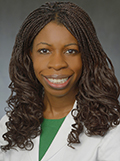 Nadia Bennett is an associate professor of clinical medicine and academic hospitalist at Penn and Penn Presbyterian Medical Center. After serving as the internal medicine clerkship co-director for six years, she transitioned to her current role as associate dean of the Clinical and Health Systems Sciences Curriculum at PSOM. She currently serves on the Clerkship Directors in Internal Medicine Council and on the Education Committee for the Society of Hospital Medicine. Dr. Bennett has a significant interest in both undergraduate and graduate medical education with a special focus on clinical reasoning, bedside rounding and curriculum development.
Nadia Bennett is an associate professor of clinical medicine and academic hospitalist at Penn and Penn Presbyterian Medical Center. After serving as the internal medicine clerkship co-director for six years, she transitioned to her current role as associate dean of the Clinical and Health Systems Sciences Curriculum at PSOM. She currently serves on the Clerkship Directors in Internal Medicine Council and on the Education Committee for the Society of Hospital Medicine. Dr. Bennett has a significant interest in both undergraduate and graduate medical education with a special focus on clinical reasoning, bedside rounding and curriculum development.
Practicing medicine along with teaching and mentoring her trainees have been a passion for Dr. Bennett throughout her career. She has received several teaching accolades for her efforts including two Penn Pearls Teaching Awards, the Donald B. Martin Teaching Service Award, the John M. Eisenberg Teaching Award, the Dean’s Award for Excellence in Teaching at an Affiliated Hospital and the Mutch Hospitalist Collaboration Award. She was also inducted into the faculty Alpha Omega Alpha Society, Gold Humanism Society and Penn Medicine Minority Hall of Fame. A medical student stated that “Dr. Bennett made me feel like I was an integral part of the team and empowered me to take ownership of my patients. She is an amazing teacher, mentor and physician and I learned so much from her not only through her teachings but also just from watching her approach to patient care.”
Dean’s Award for Excellence in Clinical Teaching (at an Affiliated Hospital)
One or more Dean’s Awards for Excellence in Clinical Teaching are given annually, the recipients being selected on the advice of a committee composed of faculty and students.This year there are four recipients of this Award, which was established in 1987 to recognize clinical teaching excellence and commitment to medical education by outstanding faculty members from affiliated hospitals.
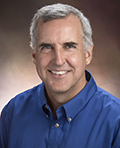 Michael D. Hogarty is a pediatric oncologist at The Children’s Hospital of Philadelphia (CHOP) and professor of pediatrics at PSOM. He did his fellowship training at CHOP and stayed on as a faculty member, now serving as associate program director of the Pediatric Hematology/Oncology Fellowship, and as director of CHOP’s Physician-Scientist Program. He is a member of the National Pediatrician-Scientist Workgroup. Over the past 20 years, Dr. Hogarty has mentored over 50 post-doctoral, medical, graduate and undergraduate students in the research arena and mentored medical students, residents and fellows in a variety of clinical oncology settings, including within the specialty-clinic for children with diverse histiocytic disorders, which he directs. One of Dr. Hogarty’s former fellows stated, “He has an easy and accessible style that appeals to patients, families, nurses and trainees alike. He uses humor to make his points memorable and is able to convey complex ideas in a way that does not feel intimidating to learners. His clinics are favorable among fellows.”
Michael D. Hogarty is a pediatric oncologist at The Children’s Hospital of Philadelphia (CHOP) and professor of pediatrics at PSOM. He did his fellowship training at CHOP and stayed on as a faculty member, now serving as associate program director of the Pediatric Hematology/Oncology Fellowship, and as director of CHOP’s Physician-Scientist Program. He is a member of the National Pediatrician-Scientist Workgroup. Over the past 20 years, Dr. Hogarty has mentored over 50 post-doctoral, medical, graduate and undergraduate students in the research arena and mentored medical students, residents and fellows in a variety of clinical oncology settings, including within the specialty-clinic for children with diverse histiocytic disorders, which he directs. One of Dr. Hogarty’s former fellows stated, “He has an easy and accessible style that appeals to patients, families, nurses and trainees alike. He uses humor to make his points memorable and is able to convey complex ideas in a way that does not feel intimidating to learners. His clinics are favorable among fellows.”
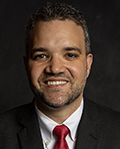 César A. Briceño is an assistant professor of clinical ophthalmology at the University of Pennsylvania, specializing in ophthalmic plastic and reconstructive surgery. He came to the University of Pennsylvania in 2016 from the University of Michigan, where he participated in the Medical Education Scholars Program and established resident and medical student exchange programs between the University of Michigan and several universities in Latin America. Dr. Briceño is a committed and enthusiastic educator in the department of ophthalmology, working closely with students and trainees at all levels. He has held various teaching roles both inside and outside of the clinic, including mentor, faculty advisor and principal investigator on student research projects. Dr. Briceño is active in various educational initiatives on institutional, national and international scales, and he was the recipient of the Golden Apple Resident Teaching Award in 2018 and 2019. Dr. Briceño places great value on the opportunity to empower students and trainees as they begin their careers, and he strives to create a positive and supportive learning environment. One of Dr. Briceño’s students said, “It doesn’t take long to recognize the unequaled positive impact Dr. Briceño has on everyone he meets. In and outside of the operating room (OR), Dr. Briceño is masterful in his ability to connect with those around him and energize them to perform and embody their best self. After a few hours in the OR, everyone from techs, trainees and anesthesiologists feel a true bond, not only with him, but with everyone in the room, united by his unparalleled ability to make any combination of people on the surgical team feel like family.”
César A. Briceño is an assistant professor of clinical ophthalmology at the University of Pennsylvania, specializing in ophthalmic plastic and reconstructive surgery. He came to the University of Pennsylvania in 2016 from the University of Michigan, where he participated in the Medical Education Scholars Program and established resident and medical student exchange programs between the University of Michigan and several universities in Latin America. Dr. Briceño is a committed and enthusiastic educator in the department of ophthalmology, working closely with students and trainees at all levels. He has held various teaching roles both inside and outside of the clinic, including mentor, faculty advisor and principal investigator on student research projects. Dr. Briceño is active in various educational initiatives on institutional, national and international scales, and he was the recipient of the Golden Apple Resident Teaching Award in 2018 and 2019. Dr. Briceño places great value on the opportunity to empower students and trainees as they begin their careers, and he strives to create a positive and supportive learning environment. One of Dr. Briceño’s students said, “It doesn’t take long to recognize the unequaled positive impact Dr. Briceño has on everyone he meets. In and outside of the operating room (OR), Dr. Briceño is masterful in his ability to connect with those around him and energize them to perform and embody their best self. After a few hours in the OR, everyone from techs, trainees and anesthesiologists feel a true bond, not only with him, but with everyone in the room, united by his unparalleled ability to make any combination of people on the surgical team feel like family.”
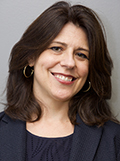 Kristin Leight serves as the senior associate program director for the Penn Psychiatry Residency. Dr. Leight received her bachelor’s degree with highest honors in English and creative writing from the University of North Carolina at Chapel Hill in 1994 on a Morehead Scholarship and her MA in classics and English literature from Magdalen College, Oxford University, in 1997 on a British Marshall Scholarship. She worked as a research assistant and coordinator for psychiatrist Lori Altshuler at UCLA 1997-98 and 1999-2000 and completed a post baccalaureate premedical course at Bryn Mawr College 1998-1999. After receiving her MD from Harvard Medical School in 2004, Dr. Leight completed her psychiatry residency at Columbia University Medical Center/New York State Psychiatric Institute in 2008 as a chief resident. Upon graduation from Columbia residency, she was hired as an inpatient attending at New York Presbyterian Hospital’s 9 Garden North inpatient unit. She also worked as an outpatient attending in the Columbia’s Women’s Program. From 2009 to 2010, she completed a fellowship in Women’s Mental Health at Columbia. From 2010 to 2011, she served as an attending at the Columbia Intensive Outpatient Program. From 2010 to 2014, she served as an outpatient attending at the Columbia Women’s Program and also as the fellowship director for the Women’s Mental Health Fellowship at Columbia. Dr. Leight was an instructor in clinical psychiatry 2008-2011 and assistant professor of clinical psychiatry at Columbia 2011-2015. She was awarded the Roger MacKinnon Award for Outstanding Teaching of Psychiatry by the Columbia Psychiatry residency class of 2013. Dr. Leight joined the University of Pennsylvania, department of psychiatry in 2015. She has served as a psychiatry attending in the Outpatient Psychiatry Clinic and led the mood disorders inpatient team on Pennsylvania Hospital’s 6 Spruce unit 2017-2019. Dr. Leight was awarded the Earl Bond Award for Excellence in Clinical Education in 2019. Her clinical interests include mood disorders, women’s mental health and psychodynamic psychotherapy. She is also interested in promoting physician wellness and well-being. One of her medical students stated that, “Dr. Leight was among the very best teachers I have had in medical school and had made me consider a field I had never before envisioned myself in. She is the type of clinician and teacher I hope to be one day and I cannot imagine someone more deserving of this award.”
Kristin Leight serves as the senior associate program director for the Penn Psychiatry Residency. Dr. Leight received her bachelor’s degree with highest honors in English and creative writing from the University of North Carolina at Chapel Hill in 1994 on a Morehead Scholarship and her MA in classics and English literature from Magdalen College, Oxford University, in 1997 on a British Marshall Scholarship. She worked as a research assistant and coordinator for psychiatrist Lori Altshuler at UCLA 1997-98 and 1999-2000 and completed a post baccalaureate premedical course at Bryn Mawr College 1998-1999. After receiving her MD from Harvard Medical School in 2004, Dr. Leight completed her psychiatry residency at Columbia University Medical Center/New York State Psychiatric Institute in 2008 as a chief resident. Upon graduation from Columbia residency, she was hired as an inpatient attending at New York Presbyterian Hospital’s 9 Garden North inpatient unit. She also worked as an outpatient attending in the Columbia’s Women’s Program. From 2009 to 2010, she completed a fellowship in Women’s Mental Health at Columbia. From 2010 to 2011, she served as an attending at the Columbia Intensive Outpatient Program. From 2010 to 2014, she served as an outpatient attending at the Columbia Women’s Program and also as the fellowship director for the Women’s Mental Health Fellowship at Columbia. Dr. Leight was an instructor in clinical psychiatry 2008-2011 and assistant professor of clinical psychiatry at Columbia 2011-2015. She was awarded the Roger MacKinnon Award for Outstanding Teaching of Psychiatry by the Columbia Psychiatry residency class of 2013. Dr. Leight joined the University of Pennsylvania, department of psychiatry in 2015. She has served as a psychiatry attending in the Outpatient Psychiatry Clinic and led the mood disorders inpatient team on Pennsylvania Hospital’s 6 Spruce unit 2017-2019. Dr. Leight was awarded the Earl Bond Award for Excellence in Clinical Education in 2019. Her clinical interests include mood disorders, women’s mental health and psychodynamic psychotherapy. She is also interested in promoting physician wellness and well-being. One of her medical students stated that, “Dr. Leight was among the very best teachers I have had in medical school and had made me consider a field I had never before envisioned myself in. She is the type of clinician and teacher I hope to be one day and I cannot imagine someone more deserving of this award.”
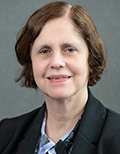 Victoria Werth is a professor of dermatology and medicine at PSOM and chief of the division of dermatology at the Philadelphia Veterans Administration Hospital. Dr. Werth earned her medical degree from Johns Hopkins University School of Medicine in Baltimore, Maryland. She completed a residency in internal medicine at Northwestern Memorial Hospital in Chicago, Illinois, and dermatology residency and immunodermatology fellowship at New York University School of Medicine in New York. She joined the faculty at Penn in 1989 and has developed an internationally recognized program in autoimmune skin diseases.
Victoria Werth is a professor of dermatology and medicine at PSOM and chief of the division of dermatology at the Philadelphia Veterans Administration Hospital. Dr. Werth earned her medical degree from Johns Hopkins University School of Medicine in Baltimore, Maryland. She completed a residency in internal medicine at Northwestern Memorial Hospital in Chicago, Illinois, and dermatology residency and immunodermatology fellowship at New York University School of Medicine in New York. She joined the faculty at Penn in 1989 and has developed an internationally recognized program in autoimmune skin diseases.
She is a co-founder of the Rheumatologic Dermatology Society and previous president of the group. She is co-founder of the Medical Dermatology Society and a recipient of their lifetime achievement award. She initiated the combined internal medicine/dermatology residency program in the US, which has successfully trained prominent leaders in complex medical dermatology. She has a longstanding interest in clinical and translational research pertaining to autoimmune skin diseases, including cutaneous lupus erythematosus, dermatomyositis and autoimmune blistering diseases, with a focus on improving the treatment and outcomes of autoimmune dermatologic diseases. She has developed and validated disease severity tools now used in many international trials in lupus erythematosus, dermatomyositis and autoimmune blistering diseases, with a goal to advancing evidence for current and new therapeutics targeting these diseases. Her laboratory studies include studies of the mechanisms of cutaneous lupus and dermatomyositis, biomarker studies in cutaneous lupus and dermatomyositis that relate to pathogenesis and ultraviolet light effects on skin. Recent clinical studies have examined mechanistic effects of therapeutics in CLE, as well as subset-specific expression of cytokine signatures. She has mentored many medical students and residents through her clinical and research studies, as well as taught many students in her autoimmune and VA dermatology clinics. Her work has been funded by the Dermatology Foundation, NIH, DOD, the VA, numerous autoimmune disease foundations and industry. One of her former trainees stated that “Dr. Werth is a giant in the field of dermatology. She is approachable, kind, patient, brilliant and an inspiration to many of us. While others read her articles and listen to her lecture, I can say that I learned from her at the bedside. For that I will be eternally grateful.”
The Robert Dunning Dripps Memorial Award for Excellence in Graduate Medical Education
This award was established by the department of anesthesia in 1983-1984. As a pioneer in the specialty of anesthesia and chair of the department from 1943 to 1972, Dr. Dripps was instrumental in the training of more than 300 residents and fellows, many of whom went on to chair other departments. This award is to recognize excellence as an educator of residents and fellows in clinical care, research, teaching, or administration.
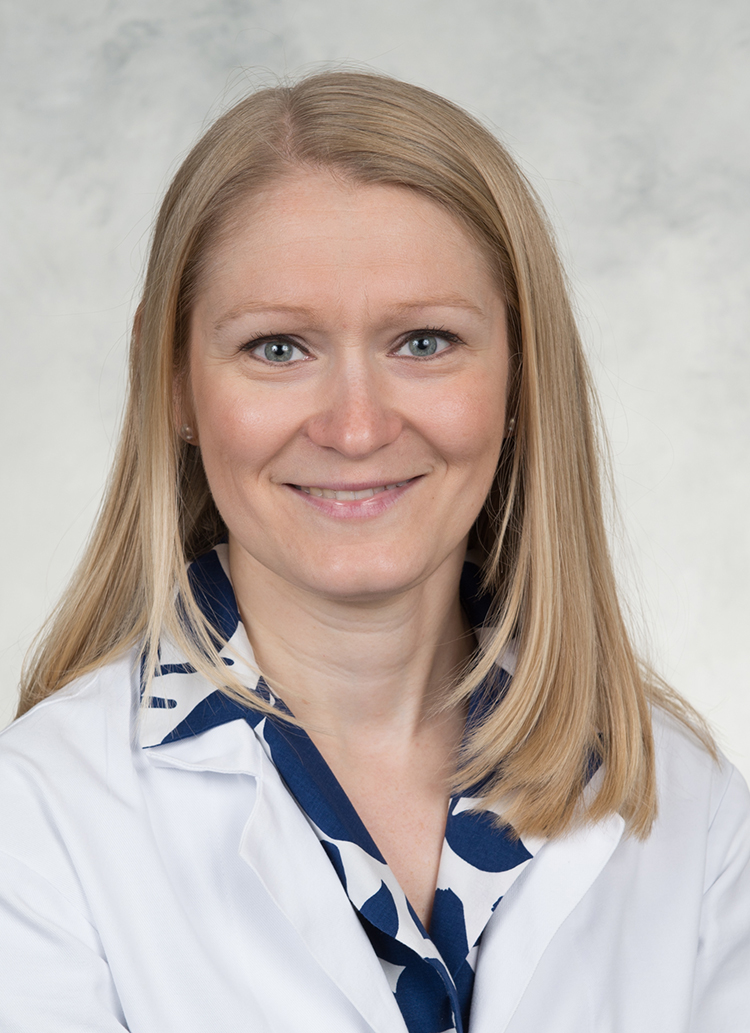 Margaret Baylson is an associate professor of clinical family medicine and has served as residency program director here since 2010. During her tenure, the residency program has increased in size by fifty percent, at first through a HRSA grant and then through state funding for residency expansion. Dr. Baylson currently serves as the chief of family medicine at Penn Presbyterian Medical Center and as the president-elect of the Medical Executive Committee at Penn Presbyterian. Dr. Baylson is the current chair of the Pennsylvania Assembly of Program Directors and holds a seat on the Board of Directors of the Pennsylvania Academy of Family Physicians.
Margaret Baylson is an associate professor of clinical family medicine and has served as residency program director here since 2010. During her tenure, the residency program has increased in size by fifty percent, at first through a HRSA grant and then through state funding for residency expansion. Dr. Baylson currently serves as the chief of family medicine at Penn Presbyterian Medical Center and as the president-elect of the Medical Executive Committee at Penn Presbyterian. Dr. Baylson is the current chair of the Pennsylvania Assembly of Program Directors and holds a seat on the Board of Directors of the Pennsylvania Academy of Family Physicians.
Dr. Baylson completed her medical school training at Sidney Kimmel Medical College at Thomas Jefferson University and her residency training in family medicine here at Penn in the department of family medicine and community health. She obtained her master’s in public health at the University of Pennsylvania, where she conducted qualitative research related to motivational interviewing and IUD provision. One of her residents commented that “Dr. Baylson exhibits exemplary leadership and teaching skills in ways that foster learning and growth in all the trainees with whom she has worked. Furthermore, Dr. Baylson is forward-thinking and takes a hands-on approach to improving our residency.”
The Leonard Berwick Memorial Teaching Award
This Award was established in 1980-1981 as a memorial to Leonard Berwick by his family and the department of pathology to recognize “a member of the medical faculty who in his or her teaching effectively fuses basic science and clinical medicine.” It is intended that this award recognize persons who are outstanding teachers, particularly among our younger faculty.
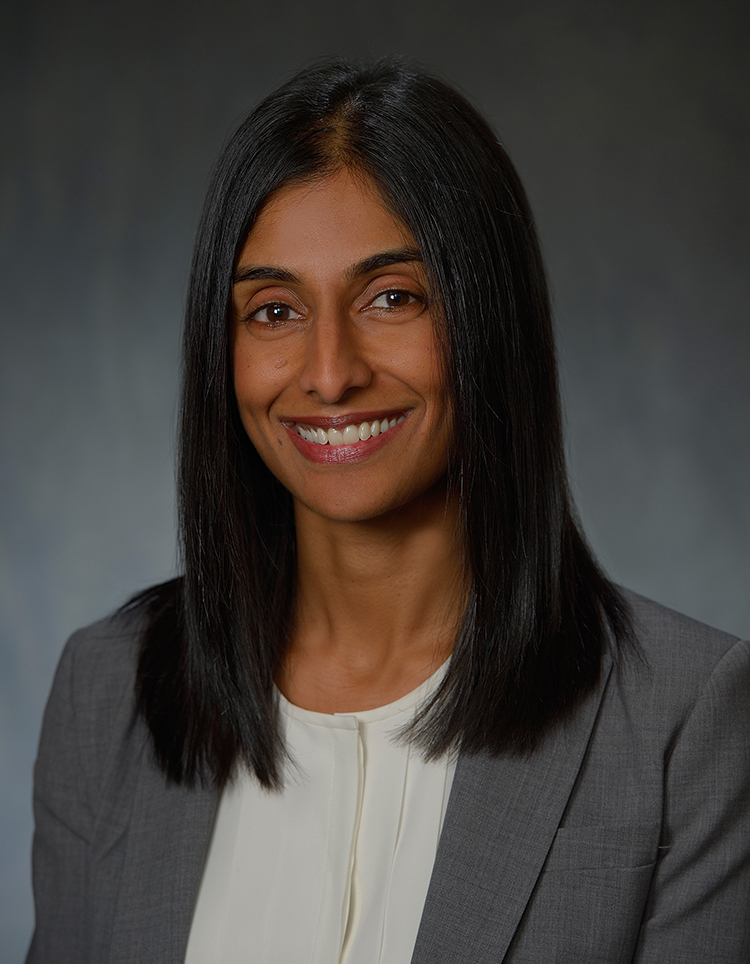 Divya Kelath Shah is an assistant professor of clinical obstetrics and gynecology in the division of reproductive endocrinology and infertility. Dr. Shah taught middle school math and science before completing medical school at Columbia University, residency in obstetrics and gynecology at the University of Michigan and fellowship in reproductive endocrinology and infertility at Brigham and Women’s Hospital. As a junior faculty member, she obtained a master’s degree in medical education in 2014 at the University of Iowa. Dr. Shah has directed the second-year Reproduction course at PSOM since 2017, when she undertook a significant curricular redesign in response to student feedback with substantial improvements in the course ranking in subsequent years. She was appointed director of undergraduate medical education in the department of obstetrics and gynecology in 2018, and recently revised the clinical clerkship curriculum in obstetrics and gynecology to align clinical teaching with reproductive physiology using a flipped classroom approach that combines virtual learning resources with formal small group Team Based Learning sessions. Dr. Shah’s teaching efforts have been consistently recognized with medical student and resident teaching awards at each stage of her career. A medical student stated that, “Dr. Shah directs the outstanding Module 2 Reproductive course. She is an excellent teacher, is committed to students, implements feedback and gets students excited about OB-GYN! The course runs like a well-oiled machine. She organizes and delivers the material in a digestible and engaging way. I came away from the course so interested in OB-GYN surgery that I emailed Dr. Shah the following summer to shadow.”
Divya Kelath Shah is an assistant professor of clinical obstetrics and gynecology in the division of reproductive endocrinology and infertility. Dr. Shah taught middle school math and science before completing medical school at Columbia University, residency in obstetrics and gynecology at the University of Michigan and fellowship in reproductive endocrinology and infertility at Brigham and Women’s Hospital. As a junior faculty member, she obtained a master’s degree in medical education in 2014 at the University of Iowa. Dr. Shah has directed the second-year Reproduction course at PSOM since 2017, when she undertook a significant curricular redesign in response to student feedback with substantial improvements in the course ranking in subsequent years. She was appointed director of undergraduate medical education in the department of obstetrics and gynecology in 2018, and recently revised the clinical clerkship curriculum in obstetrics and gynecology to align clinical teaching with reproductive physiology using a flipped classroom approach that combines virtual learning resources with formal small group Team Based Learning sessions. Dr. Shah’s teaching efforts have been consistently recognized with medical student and resident teaching awards at each stage of her career. A medical student stated that, “Dr. Shah directs the outstanding Module 2 Reproductive course. She is an excellent teacher, is committed to students, implements feedback and gets students excited about OB-GYN! The course runs like a well-oiled machine. She organizes and delivers the material in a digestible and engaging way. I came away from the course so interested in OB-GYN surgery that I emailed Dr. Shah the following summer to shadow.”
The Scott Mackler Award for Excellence in Substance Abuse Teaching
This award was established in 2000 by the Penn/VA Center for Studies of Addiction and the department of psychiatry. Dr. Mackler is known for his excellence in teaching medical students, residents, post-doctoral fellows, nurses and other Penn faculty in many different departments in the area of substance abuse.
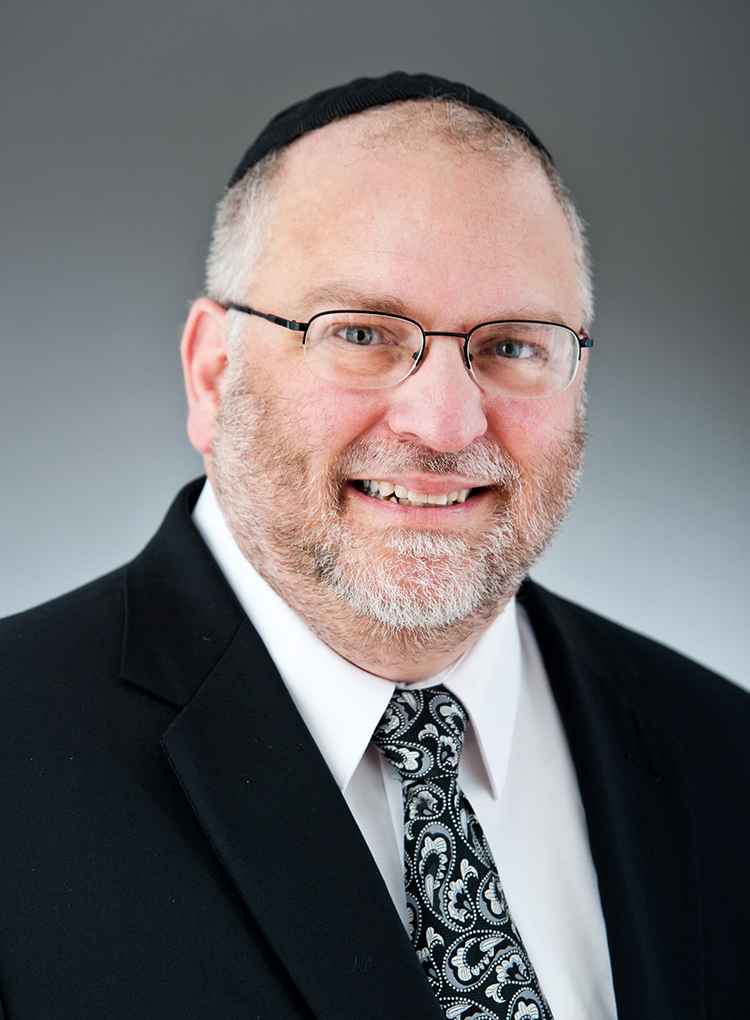 David Weiss is a clinical associate professor in the department of psychiatry. He is an attending on the Wright 5 dual diagnosis unit at Penn Presbyterian Medical Center and at the PPMC Addiction Treatment Services IOP. Dr. Weiss has served on the faculty at PSOM since 2003. Dr. Weiss has been the recipient of numerous department teaching awards. Dr. Weiss is a neuropsychiatrist and has a passion for medical education. Appreciated for his humor and critical analytic skills, Dr. Weiss is known for his effective teaching style. He encourages independent thinking and makes his students’ intellectual and clinical growth his top priority. One of his MD/PhD students stated that, Dr. Weiss consistently demonstrated his enthusiasm and dedication to teaching students. He did an excellent job of integrating medical students into the team and in doing so, gave us invaluable training in caring for patients with substance use disorders.”
David Weiss is a clinical associate professor in the department of psychiatry. He is an attending on the Wright 5 dual diagnosis unit at Penn Presbyterian Medical Center and at the PPMC Addiction Treatment Services IOP. Dr. Weiss has served on the faculty at PSOM since 2003. Dr. Weiss has been the recipient of numerous department teaching awards. Dr. Weiss is a neuropsychiatrist and has a passion for medical education. Appreciated for his humor and critical analytic skills, Dr. Weiss is known for his effective teaching style. He encourages independent thinking and makes his students’ intellectual and clinical growth his top priority. One of his MD/PhD students stated that, Dr. Weiss consistently demonstrated his enthusiasm and dedication to teaching students. He did an excellent job of integrating medical students into the team and in doing so, gave us invaluable training in caring for patients with substance use disorders.”
Dean’s Award for Excellence in Basic Science Teaching
The Dean’s Award for Excellence in Basic Science Teaching was established in 1987 to recognize teaching excellence and commitment to medical student teaching in the basic sciences. One or more Dean’s Awards for Excellence in Basic Science Teaching are made annually, the recipients being selected on the advice of a committee composed of faculty and students.
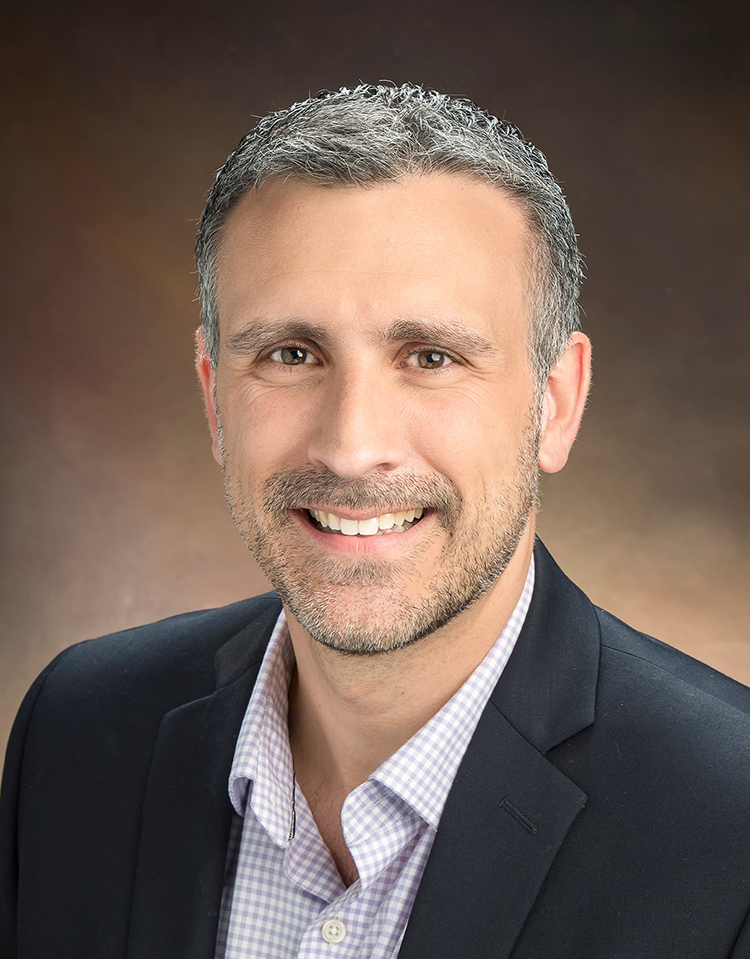 Rodney M. Camire is a professor of pediatrics in the division of hematology at PSOM. Dr. Camire currently holds the Children’s Hospital of Philadelphia Endowed Chair in Pediatric Hematology. His laboratory is interested in understanding the components of the blood coagulation system, how they interface with activated cells and how disturbances in their function lead to bleeding and thrombosis. His group also develops therapeutic approaches to mitigate these events which are major causes of morbidity and mortality worldwide. Dr. Camire has mentored over 30 students, fellows and junior faculty. He participates in the Pharmacology Graduate Group and in teaching medical students within the biochemistry section of Module I. He also has leveraged his leadership positions in professional societies to promote mentoring of junior colleagues in his field of study. He received his BA from Saint Anselm College and his PhD in biochemistry from The University of Vermont. A former trainee of Dr. Camire’s wrote, “His passion for research, his natural ability to explain the matters of science in great detail but at the same time with extreme simplicity and his talent in getting the best out of people have made the training under his supervision a great learning experience.”
Rodney M. Camire is a professor of pediatrics in the division of hematology at PSOM. Dr. Camire currently holds the Children’s Hospital of Philadelphia Endowed Chair in Pediatric Hematology. His laboratory is interested in understanding the components of the blood coagulation system, how they interface with activated cells and how disturbances in their function lead to bleeding and thrombosis. His group also develops therapeutic approaches to mitigate these events which are major causes of morbidity and mortality worldwide. Dr. Camire has mentored over 30 students, fellows and junior faculty. He participates in the Pharmacology Graduate Group and in teaching medical students within the biochemistry section of Module I. He also has leveraged his leadership positions in professional societies to promote mentoring of junior colleagues in his field of study. He received his BA from Saint Anselm College and his PhD in biochemistry from The University of Vermont. A former trainee of Dr. Camire’s wrote, “His passion for research, his natural ability to explain the matters of science in great detail but at the same time with extreme simplicity and his talent in getting the best out of people have made the training under his supervision a great learning experience.”
Dean’s Award for Excellence in Medical Student Teaching by an Allied Health Professional
This award was established in 1996-1997 to recognize outstanding teaching by allied health professionals (e.g.; nurses, physician’s assistants, emergency medical technicians). The recipient was selected on the advice of a committee composed of faculty and students.
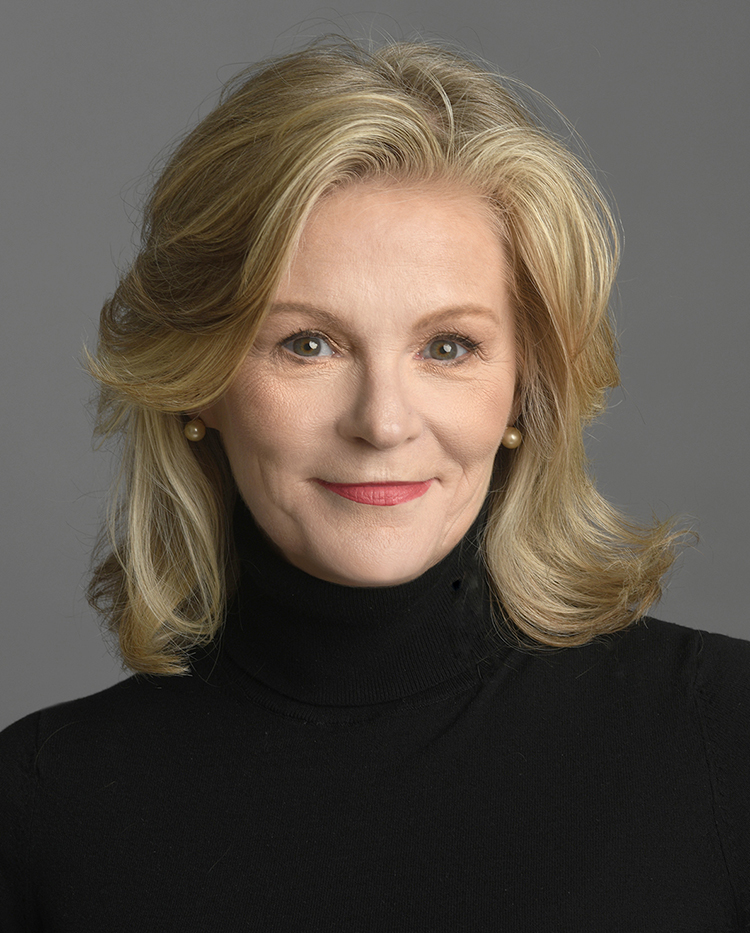 Jacqueline Hudak is a licensed couple and family therapist (PA and NJ) and a clinical assistant professor of psychiatry at The University of Pennsylvania. Dr. Hudak has been working with individuals, couples, families and groups for over 35 years. She is a consultant, clinical supervisor, family therapy educator and published author. Dr. Hudak maintains an active blog, in efforts to bring research about the family into public discourses, as well as the clinical setting.
Jacqueline Hudak is a licensed couple and family therapist (PA and NJ) and a clinical assistant professor of psychiatry at The University of Pennsylvania. Dr. Hudak has been working with individuals, couples, families and groups for over 35 years. She is a consultant, clinical supervisor, family therapy educator and published author. Dr. Hudak maintains an active blog, in efforts to bring research about the family into public discourses, as well as the clinical setting.
Dr. Hudak was formerly the clinical director of The Center for Couples and Adult Families at Penn Medicine (2013-2019). In that position, she collaborated with program directors and colleagues in psychiatry to provide family psychoeducation and couple and family therapy for a wide variety of mood and substance use disorders. As clinical faculty, she remains actively involved in teaching. One of her trainees wrote, Dr. Hudak’s extensive expertise and vast experience is evident, and her enthusiasm for teaching is engaging and motivating. In a field where family engagement is not an essential part of psychiatric care for a variety of unfortunate historical and structural barriers, Dr. Hudak’s appeal to a systemic approach inspires trainees to take advantage of the rich therapeutic benefit it has to offer. In addition, her knowledge of culture and gender issues deepens understanding of family dynamics, and her ability to connect with families from a wide range of backgrounds is invaluable.
Dean’s Award for Excellence in Clinical Teaching by Housestaff
This award was established in 2015 to recognize clinical teaching excellence and commitment to medical education by outstanding housestaff. One award was selected on the advice of a committee composed of faculty and students.
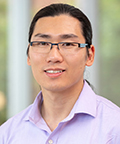 Albert Yu is currently completing his final year of psychiatry residency at Penn and is the chief resident for medical education. First getting hooked into medical education as a teaching assistant for gross anatomy, cell biology and biochemistry courses during his fourth year of medical school, Dr. Yu has always been deeply invested in medical education. Whether it’s teaching preclinical medical students in brain and behavior or “Doctoring,” clerkship students with didactics in psychiatric interviewing, consultation psychiatry, and bipolar pharmacology, or other residents in interdepartmental exchange didactics with internal medicine, Dr. Yu has sought opportunities to create new exchanges and foster a greater academic curiosity and growth.
Albert Yu is currently completing his final year of psychiatry residency at Penn and is the chief resident for medical education. First getting hooked into medical education as a teaching assistant for gross anatomy, cell biology and biochemistry courses during his fourth year of medical school, Dr. Yu has always been deeply invested in medical education. Whether it’s teaching preclinical medical students in brain and behavior or “Doctoring,” clerkship students with didactics in psychiatric interviewing, consultation psychiatry, and bipolar pharmacology, or other residents in interdepartmental exchange didactics with internal medicine, Dr. Yu has sought opportunities to create new exchanges and foster a greater academic curiosity and growth.
Dr. Yu is honored and humbled to share the gift of kindness, patience and knowledge which his teachers, past and present, continue to show him every day. One of his student/trainees stated that, “Dr. Albert Yu stands out among the many exceptional resident teachers who I have been lucky to work with as a Perelman medical student. For Dr. Yu, teaching is not an obligation but a priority. Even early in his residency training, he routinely dedicated blocks of time to structured, individualized teaching. With a unique insight into personality and learning style, he adapted his teaching to fit the students’ needs.”
The Michael P. Nusbaum Graduate Student Mentoring Award
This award was established in 2017 to honor Mikey Nusbaum as he stepped down from his role as associate dean for graduate education and director of biomedical graduate studies.
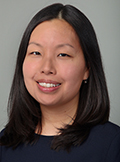 This year the award is presented to Sunny Shin, associate professor of microbiology. Dr. Shin’s commitment to supporting the health and happiness of her mentees as well as their academic and professional success is evident in their statements:
This year the award is presented to Sunny Shin, associate professor of microbiology. Dr. Shin’s commitment to supporting the health and happiness of her mentees as well as their academic and professional success is evident in their statements:
“Thanks to Dr. Shin, I have learned a great deal on time management, organization and the importance of mental health. Her advice and outlook on life has guided me in the right direction in my graduate career thus far and I consider Dr. Shin to be one of my role models indefinitely.”
“Sunny embodies everything that a good mentor should be: someone that will help you achieve your goals, will guide you and teach you through your graduate school career; will create an environment that fosters collaboration and creative ideas, and give you the advice and support needed to be successful throughout your career and in life.”
Dr. Shin’s dedication to mentoring and guiding students in reaching their scholarly potential exemplifies the type of scientist and mentor that Mikey Nusbaum represents.
The Jane M. Glick Graduate Student Teaching Award
This award was established in 2009 by the Glick family in remembrance of Jane Glick, and her dedication to the Biomedical Graduate Studies (BGS) programs (Almanac November 24, 2009).
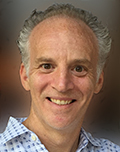 This year the award is presented to Yale Cohen, professor of otorhinolaryngology with secondary appointments in neuroscience and bioengineering. Dr. Cohen’s students highly praise his engaging approach to teaching:
This year the award is presented to Yale Cohen, professor of otorhinolaryngology with secondary appointments in neuroscience and bioengineering. Dr. Cohen’s students highly praise his engaging approach to teaching:
“He did not just tell us answers; he helped us arrive to the answers ourselves. Moreover, Dr. Cohen was a source of energy that kept you going through tough mornings.”
“Yale is a great lecturer. He is enthusiastic, engaging and full of energy. You can always count on Yale to come to class with bursting amount of energy and attention.”
“Through his honesty and compassion Yale is uniquely able to support students so that they are able to achieve their absolute academic best.”
His commitment to educating and training the next generation of scientists exemplifies the type of scientist and educator that Jane Glick represented.
Medical Student Government Awards
Each year the graduating class honors one clinician and one basic scientist in recognition of their excellence in teaching. These awards are determined by a vote of the class.
MSG Basic Science Teaching Award
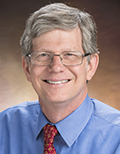 Robert Doms is a professor of pathology and laboratory medicine. Dr. Doms formerly directed the Microbiology/Infectious Diseases course taught to the first-year medical students and gave most of the lectures in the class. He developed an innovative small-group teaching format in which hyperlinked slide decks were used to construct learning-trees. After being presented with a clinical case, students faced several options, each of which took them down a different path. Referred to by the students as “Choose Your Own Adventure,” this teaching format stressed decision-making and was found to be a very effective learning strategy.
Robert Doms is a professor of pathology and laboratory medicine. Dr. Doms formerly directed the Microbiology/Infectious Diseases course taught to the first-year medical students and gave most of the lectures in the class. He developed an innovative small-group teaching format in which hyperlinked slide decks were used to construct learning-trees. After being presented with a clinical case, students faced several options, each of which took them down a different path. Referred to by the students as “Choose Your Own Adventure,” this teaching format stressed decision-making and was found to be a very effective learning strategy.
MSG Clinical Teaching Award
Nadia Bennett is an associate professor of clinical medicine and academic hospitalist at the University of Pennsylvania and Penn Presbyterian Medical Center. She is this year’s recipient of the Blockley-Osler Award. See above for her biography and photo.

 Nadia Bennett is an associate professor of clinical medicine and academic hospitalist at Penn and Penn Presbyterian Medical Center. After serving as the internal medicine clerkship co-director for six years, she transitioned to her current role as associate dean of the Clinical and Health Systems Sciences Curriculum at PSOM. She currently serves on the Clerkship Directors in Internal Medicine Council and on the Education Committee for the Society of Hospital Medicine. Dr. Bennett has a significant interest in both undergraduate and graduate medical education with a special focus on clinical reasoning, bedside rounding and curriculum development.
Nadia Bennett is an associate professor of clinical medicine and academic hospitalist at Penn and Penn Presbyterian Medical Center. After serving as the internal medicine clerkship co-director for six years, she transitioned to her current role as associate dean of the Clinical and Health Systems Sciences Curriculum at PSOM. She currently serves on the Clerkship Directors in Internal Medicine Council and on the Education Committee for the Society of Hospital Medicine. Dr. Bennett has a significant interest in both undergraduate and graduate medical education with a special focus on clinical reasoning, bedside rounding and curriculum development. Michael D. Hogarty is a pediatric oncologist at The Children’s Hospital of Philadelphia (CHOP) and professor of pediatrics at PSOM. He did his fellowship training at CHOP and stayed on as a faculty member, now serving as associate program director of the Pediatric Hematology/Oncology Fellowship, and as director of CHOP’s Physician-Scientist Program. He is a member of the National Pediatrician-Scientist Workgroup. Over the past 20 years, Dr. Hogarty has mentored over 50 post-doctoral, medical, graduate and undergraduate students in the research arena and mentored medical students, residents and fellows in a variety of clinical oncology settings, including within the specialty-clinic for children with diverse histiocytic disorders, which he directs. One of Dr. Hogarty’s former fellows stated, “He has an easy and accessible style that appeals to patients, families, nurses and trainees alike. He uses humor to make his points memorable and is able to convey complex ideas in a way that does not feel intimidating to learners. His clinics are favorable among fellows.”
Michael D. Hogarty is a pediatric oncologist at The Children’s Hospital of Philadelphia (CHOP) and professor of pediatrics at PSOM. He did his fellowship training at CHOP and stayed on as a faculty member, now serving as associate program director of the Pediatric Hematology/Oncology Fellowship, and as director of CHOP’s Physician-Scientist Program. He is a member of the National Pediatrician-Scientist Workgroup. Over the past 20 years, Dr. Hogarty has mentored over 50 post-doctoral, medical, graduate and undergraduate students in the research arena and mentored medical students, residents and fellows in a variety of clinical oncology settings, including within the specialty-clinic for children with diverse histiocytic disorders, which he directs. One of Dr. Hogarty’s former fellows stated, “He has an easy and accessible style that appeals to patients, families, nurses and trainees alike. He uses humor to make his points memorable and is able to convey complex ideas in a way that does not feel intimidating to learners. His clinics are favorable among fellows.” César A. Briceño is an assistant professor of clinical ophthalmology at the University of Pennsylvania, specializing in ophthalmic plastic and reconstructive surgery. He came to the University of Pennsylvania in 2016 from the University of Michigan, where he participated in the Medical Education Scholars Program and established resident and medical student exchange programs between the University of Michigan and several universities in Latin America. Dr. Briceño is a committed and enthusiastic educator in the department of ophthalmology, working closely with students and trainees at all levels. He has held various teaching roles both inside and outside of the clinic, including mentor, faculty advisor and principal investigator on student research projects. Dr. Briceño is active in various educational initiatives on institutional, national and international scales, and he was the recipient of the Golden Apple Resident Teaching Award in 2018 and 2019. Dr. Briceño places great value on the opportunity to empower students and trainees as they begin their careers, and he strives to create a positive and supportive learning environment. One of Dr. Briceño’s students said, “It doesn’t take long to recognize the unequaled positive impact Dr. Briceño has on everyone he meets. In and outside of the operating room (OR), Dr. Briceño is masterful in his ability to connect with those around him and energize them to perform and embody their best self. After a few hours in the OR, everyone from techs, trainees and anesthesiologists feel a true bond, not only with him, but with everyone in the room, united by his unparalleled ability to make any combination of people on the surgical team feel like family.”
César A. Briceño is an assistant professor of clinical ophthalmology at the University of Pennsylvania, specializing in ophthalmic plastic and reconstructive surgery. He came to the University of Pennsylvania in 2016 from the University of Michigan, where he participated in the Medical Education Scholars Program and established resident and medical student exchange programs between the University of Michigan and several universities in Latin America. Dr. Briceño is a committed and enthusiastic educator in the department of ophthalmology, working closely with students and trainees at all levels. He has held various teaching roles both inside and outside of the clinic, including mentor, faculty advisor and principal investigator on student research projects. Dr. Briceño is active in various educational initiatives on institutional, national and international scales, and he was the recipient of the Golden Apple Resident Teaching Award in 2018 and 2019. Dr. Briceño places great value on the opportunity to empower students and trainees as they begin their careers, and he strives to create a positive and supportive learning environment. One of Dr. Briceño’s students said, “It doesn’t take long to recognize the unequaled positive impact Dr. Briceño has on everyone he meets. In and outside of the operating room (OR), Dr. Briceño is masterful in his ability to connect with those around him and energize them to perform and embody their best self. After a few hours in the OR, everyone from techs, trainees and anesthesiologists feel a true bond, not only with him, but with everyone in the room, united by his unparalleled ability to make any combination of people on the surgical team feel like family.” Kristin Leight serves as the senior associate program director for the Penn Psychiatry Residency. Dr. Leight received her bachelor’s degree with highest honors in English and creative writing from the University of North Carolina at Chapel Hill in 1994 on a Morehead Scholarship and her MA in classics and English literature from Magdalen College, Oxford University, in 1997 on a British Marshall Scholarship. She worked as a research assistant and coordinator for psychiatrist Lori Altshuler at UCLA 1997-98 and 1999-2000 and completed a post baccalaureate premedical course at Bryn Mawr College 1998-1999. After receiving her MD from Harvard Medical School in 2004, Dr. Leight completed her psychiatry residency at Columbia University Medical Center/New York State Psychiatric Institute in 2008 as a chief resident. Upon graduation from Columbia residency, she was hired as an inpatient attending at New York Presbyterian Hospital’s 9 Garden North inpatient unit. She also worked as an outpatient attending in the Columbia’s Women’s Program. From 2009 to 2010, she completed a fellowship in Women’s Mental Health at Columbia. From 2010 to 2011, she served as an attending at the Columbia Intensive Outpatient Program. From 2010 to 2014, she served as an outpatient attending at the Columbia Women’s Program and also as the fellowship director for the Women’s Mental Health Fellowship at Columbia. Dr. Leight was an instructor in clinical psychiatry 2008-2011 and assistant professor of clinical psychiatry at Columbia 2011-2015. She was awarded the Roger MacKinnon Award for Outstanding Teaching of Psychiatry by the Columbia Psychiatry residency class of 2013. Dr. Leight joined the University of Pennsylvania, department of psychiatry in 2015. She has served as a psychiatry attending in the Outpatient Psychiatry Clinic and led the mood disorders inpatient team on Pennsylvania Hospital’s 6 Spruce unit 2017-2019. Dr. Leight was awarded the Earl Bond Award for Excellence in Clinical Education in 2019. Her clinical interests include mood disorders, women’s mental health and psychodynamic psychotherapy. She is also interested in promoting physician wellness and well-being. One of her medical students stated that, “Dr. Leight was among the very best teachers I have had in medical school and had made me consider a field I had never before envisioned myself in. She is the type of clinician and teacher I hope to be one day and I cannot imagine someone more deserving of this award.”
Kristin Leight serves as the senior associate program director for the Penn Psychiatry Residency. Dr. Leight received her bachelor’s degree with highest honors in English and creative writing from the University of North Carolina at Chapel Hill in 1994 on a Morehead Scholarship and her MA in classics and English literature from Magdalen College, Oxford University, in 1997 on a British Marshall Scholarship. She worked as a research assistant and coordinator for psychiatrist Lori Altshuler at UCLA 1997-98 and 1999-2000 and completed a post baccalaureate premedical course at Bryn Mawr College 1998-1999. After receiving her MD from Harvard Medical School in 2004, Dr. Leight completed her psychiatry residency at Columbia University Medical Center/New York State Psychiatric Institute in 2008 as a chief resident. Upon graduation from Columbia residency, she was hired as an inpatient attending at New York Presbyterian Hospital’s 9 Garden North inpatient unit. She also worked as an outpatient attending in the Columbia’s Women’s Program. From 2009 to 2010, she completed a fellowship in Women’s Mental Health at Columbia. From 2010 to 2011, she served as an attending at the Columbia Intensive Outpatient Program. From 2010 to 2014, she served as an outpatient attending at the Columbia Women’s Program and also as the fellowship director for the Women’s Mental Health Fellowship at Columbia. Dr. Leight was an instructor in clinical psychiatry 2008-2011 and assistant professor of clinical psychiatry at Columbia 2011-2015. She was awarded the Roger MacKinnon Award for Outstanding Teaching of Psychiatry by the Columbia Psychiatry residency class of 2013. Dr. Leight joined the University of Pennsylvania, department of psychiatry in 2015. She has served as a psychiatry attending in the Outpatient Psychiatry Clinic and led the mood disorders inpatient team on Pennsylvania Hospital’s 6 Spruce unit 2017-2019. Dr. Leight was awarded the Earl Bond Award for Excellence in Clinical Education in 2019. Her clinical interests include mood disorders, women’s mental health and psychodynamic psychotherapy. She is also interested in promoting physician wellness and well-being. One of her medical students stated that, “Dr. Leight was among the very best teachers I have had in medical school and had made me consider a field I had never before envisioned myself in. She is the type of clinician and teacher I hope to be one day and I cannot imagine someone more deserving of this award.” Victoria Werth is a professor of dermatology and medicine at PSOM and chief of the division of dermatology at the Philadelphia Veterans Administration Hospital. Dr. Werth earned her medical degree from Johns Hopkins University School of Medicine in Baltimore, Maryland. She completed a residency in internal medicine at Northwestern Memorial Hospital in Chicago, Illinois, and dermatology residency and immunodermatology fellowship at New York University School of Medicine in New York. She joined the faculty at Penn in 1989 and has developed an internationally recognized program in autoimmune skin diseases.
Victoria Werth is a professor of dermatology and medicine at PSOM and chief of the division of dermatology at the Philadelphia Veterans Administration Hospital. Dr. Werth earned her medical degree from Johns Hopkins University School of Medicine in Baltimore, Maryland. She completed a residency in internal medicine at Northwestern Memorial Hospital in Chicago, Illinois, and dermatology residency and immunodermatology fellowship at New York University School of Medicine in New York. She joined the faculty at Penn in 1989 and has developed an internationally recognized program in autoimmune skin diseases. Margaret Baylson is an associate professor of clinical family medicine and has served as residency program director here since 2010. During her tenure, the residency program has increased in size by fifty percent, at first through a HRSA grant and then through state funding for residency expansion. Dr. Baylson currently serves as the chief of family medicine at Penn Presbyterian Medical Center and as the president-elect of the Medical Executive Committee at Penn Presbyterian. Dr. Baylson is the current chair of the Pennsylvania Assembly of Program Directors and holds a seat on the Board of Directors of the Pennsylvania Academy of Family Physicians.
Margaret Baylson is an associate professor of clinical family medicine and has served as residency program director here since 2010. During her tenure, the residency program has increased in size by fifty percent, at first through a HRSA grant and then through state funding for residency expansion. Dr. Baylson currently serves as the chief of family medicine at Penn Presbyterian Medical Center and as the president-elect of the Medical Executive Committee at Penn Presbyterian. Dr. Baylson is the current chair of the Pennsylvania Assembly of Program Directors and holds a seat on the Board of Directors of the Pennsylvania Academy of Family Physicians. Divya Kelath Shah is an assistant professor of clinical obstetrics and gynecology in the division of reproductive endocrinology and infertility. Dr. Shah taught middle school math and science before completing medical school at Columbia University, residency in obstetrics and gynecology at the University of Michigan and fellowship in reproductive endocrinology and infertility at Brigham and Women’s Hospital. As a junior faculty member, she obtained a master’s degree in medical education in 2014 at the University of Iowa. Dr. Shah has directed the second-year Reproduction course at PSOM since 2017, when she undertook a significant curricular redesign in response to student feedback with substantial improvements in the course ranking in subsequent years. She was appointed director of undergraduate medical education in the department of obstetrics and gynecology in 2018, and recently revised the clinical clerkship curriculum in obstetrics and gynecology to align clinical teaching with reproductive physiology using a flipped classroom approach that combines virtual learning resources with formal small group Team Based Learning sessions. Dr. Shah’s teaching efforts have been consistently recognized with medical student and resident teaching awards at each stage of her career. A medical student stated that, “Dr. Shah directs the outstanding Module 2 Reproductive course. She is an excellent teacher, is committed to students, implements feedback and gets students excited about OB-GYN! The course runs like a well-oiled machine. She organizes and delivers the material in a digestible and engaging way. I came away from the course so interested in OB-GYN surgery that I emailed Dr. Shah the following summer to shadow.”
Divya Kelath Shah is an assistant professor of clinical obstetrics and gynecology in the division of reproductive endocrinology and infertility. Dr. Shah taught middle school math and science before completing medical school at Columbia University, residency in obstetrics and gynecology at the University of Michigan and fellowship in reproductive endocrinology and infertility at Brigham and Women’s Hospital. As a junior faculty member, she obtained a master’s degree in medical education in 2014 at the University of Iowa. Dr. Shah has directed the second-year Reproduction course at PSOM since 2017, when she undertook a significant curricular redesign in response to student feedback with substantial improvements in the course ranking in subsequent years. She was appointed director of undergraduate medical education in the department of obstetrics and gynecology in 2018, and recently revised the clinical clerkship curriculum in obstetrics and gynecology to align clinical teaching with reproductive physiology using a flipped classroom approach that combines virtual learning resources with formal small group Team Based Learning sessions. Dr. Shah’s teaching efforts have been consistently recognized with medical student and resident teaching awards at each stage of her career. A medical student stated that, “Dr. Shah directs the outstanding Module 2 Reproductive course. She is an excellent teacher, is committed to students, implements feedback and gets students excited about OB-GYN! The course runs like a well-oiled machine. She organizes and delivers the material in a digestible and engaging way. I came away from the course so interested in OB-GYN surgery that I emailed Dr. Shah the following summer to shadow.” David Weiss is a clinical associate professor in the department of psychiatry. He is an attending on the Wright 5 dual diagnosis unit at Penn Presbyterian Medical Center and at the PPMC Addiction Treatment Services IOP. Dr. Weiss has served on the faculty at PSOM since 2003. Dr. Weiss has been the recipient of numerous department teaching awards. Dr. Weiss is a neuropsychiatrist and has a passion for medical education. Appreciated for his humor and critical analytic skills, Dr. Weiss is known for his effective teaching style. He encourages independent thinking and makes his students’ intellectual and clinical growth his top priority. One of his MD/PhD students stated that, Dr. Weiss consistently demonstrated his enthusiasm and dedication to teaching students. He did an excellent job of integrating medical students into the team and in doing so, gave us invaluable training in caring for patients with substance use disorders.”
David Weiss is a clinical associate professor in the department of psychiatry. He is an attending on the Wright 5 dual diagnosis unit at Penn Presbyterian Medical Center and at the PPMC Addiction Treatment Services IOP. Dr. Weiss has served on the faculty at PSOM since 2003. Dr. Weiss has been the recipient of numerous department teaching awards. Dr. Weiss is a neuropsychiatrist and has a passion for medical education. Appreciated for his humor and critical analytic skills, Dr. Weiss is known for his effective teaching style. He encourages independent thinking and makes his students’ intellectual and clinical growth his top priority. One of his MD/PhD students stated that, Dr. Weiss consistently demonstrated his enthusiasm and dedication to teaching students. He did an excellent job of integrating medical students into the team and in doing so, gave us invaluable training in caring for patients with substance use disorders.” Rodney M. Camire is a professor of pediatrics in the division of hematology at PSOM. Dr. Camire currently holds the Children’s Hospital of Philadelphia Endowed Chair in Pediatric Hematology. His laboratory is interested in understanding the components of the blood coagulation system, how they interface with activated cells and how disturbances in their function lead to bleeding and thrombosis. His group also develops therapeutic approaches to mitigate these events which are major causes of morbidity and mortality worldwide. Dr. Camire has mentored over 30 students, fellows and junior faculty. He participates in the Pharmacology Graduate Group and in teaching medical students within the biochemistry section of Module I. He also has leveraged his leadership positions in professional societies to promote mentoring of junior colleagues in his field of study. He received his BA from Saint Anselm College and his PhD in biochemistry from The University of Vermont. A former trainee of Dr. Camire’s wrote, “His passion for research, his natural ability to explain the matters of science in great detail but at the same time with extreme simplicity and his talent in getting the best out of people have made the training under his supervision a great learning experience.”
Rodney M. Camire is a professor of pediatrics in the division of hematology at PSOM. Dr. Camire currently holds the Children’s Hospital of Philadelphia Endowed Chair in Pediatric Hematology. His laboratory is interested in understanding the components of the blood coagulation system, how they interface with activated cells and how disturbances in their function lead to bleeding and thrombosis. His group also develops therapeutic approaches to mitigate these events which are major causes of morbidity and mortality worldwide. Dr. Camire has mentored over 30 students, fellows and junior faculty. He participates in the Pharmacology Graduate Group and in teaching medical students within the biochemistry section of Module I. He also has leveraged his leadership positions in professional societies to promote mentoring of junior colleagues in his field of study. He received his BA from Saint Anselm College and his PhD in biochemistry from The University of Vermont. A former trainee of Dr. Camire’s wrote, “His passion for research, his natural ability to explain the matters of science in great detail but at the same time with extreme simplicity and his talent in getting the best out of people have made the training under his supervision a great learning experience.” Jacqueline Hudak is a licensed couple and family therapist (PA and NJ) and a clinical assistant professor of psychiatry at The University of Pennsylvania. Dr. Hudak has been working with individuals, couples, families and groups for over 35 years. She is a consultant, clinical supervisor, family therapy educator and published author. Dr. Hudak maintains an active blog, in efforts to bring research about the family into public discourses, as well as the clinical setting.
Jacqueline Hudak is a licensed couple and family therapist (PA and NJ) and a clinical assistant professor of psychiatry at The University of Pennsylvania. Dr. Hudak has been working with individuals, couples, families and groups for over 35 years. She is a consultant, clinical supervisor, family therapy educator and published author. Dr. Hudak maintains an active blog, in efforts to bring research about the family into public discourses, as well as the clinical setting. Albert Yu is currently completing his final year of psychiatry residency at Penn and is the chief resident for medical education. First getting hooked into medical education as a teaching assistant for gross anatomy, cell biology and biochemistry courses during his fourth year of medical school, Dr. Yu has always been deeply invested in medical education. Whether it’s teaching preclinical medical students in brain and behavior or “Doctoring,” clerkship students with didactics in psychiatric interviewing, consultation psychiatry, and bipolar pharmacology, or other residents in interdepartmental exchange didactics with internal medicine, Dr. Yu has sought opportunities to create new exchanges and foster a greater academic curiosity and growth.
Albert Yu is currently completing his final year of psychiatry residency at Penn and is the chief resident for medical education. First getting hooked into medical education as a teaching assistant for gross anatomy, cell biology and biochemistry courses during his fourth year of medical school, Dr. Yu has always been deeply invested in medical education. Whether it’s teaching preclinical medical students in brain and behavior or “Doctoring,” clerkship students with didactics in psychiatric interviewing, consultation psychiatry, and bipolar pharmacology, or other residents in interdepartmental exchange didactics with internal medicine, Dr. Yu has sought opportunities to create new exchanges and foster a greater academic curiosity and growth. This year the award is presented to Sunny Shin, associate professor of microbiology. Dr. Shin’s commitment to supporting the health and happiness of her mentees as well as their academic and professional success is evident in their statements:
This year the award is presented to Sunny Shin, associate professor of microbiology. Dr. Shin’s commitment to supporting the health and happiness of her mentees as well as their academic and professional success is evident in their statements: This year the award is presented to Yale Cohen, professor of otorhinolaryngology with secondary appointments in neuroscience and bioengineering. Dr. Cohen’s students highly praise his engaging approach to teaching:
This year the award is presented to Yale Cohen, professor of otorhinolaryngology with secondary appointments in neuroscience and bioengineering. Dr. Cohen’s students highly praise his engaging approach to teaching: Robert Doms is a professor of pathology and laboratory medicine. Dr. Doms formerly directed the Microbiology/Infectious Diseases course taught to the first-year medical students and gave most of the lectures in the class. He developed an innovative small-group teaching format in which hyperlinked slide decks were used to construct learning-trees. After being presented with a clinical case, students faced several options, each of which took them down a different path. Referred to by the students as “Choose Your Own Adventure,” this teaching format stressed decision-making and was found to be a very effective learning strategy.
Robert Doms is a professor of pathology and laboratory medicine. Dr. Doms formerly directed the Microbiology/Infectious Diseases course taught to the first-year medical students and gave most of the lectures in the class. He developed an innovative small-group teaching format in which hyperlinked slide decks were used to construct learning-trees. After being presented with a clinical case, students faced several options, each of which took them down a different path. Referred to by the students as “Choose Your Own Adventure,” this teaching format stressed decision-making and was found to be a very effective learning strategy.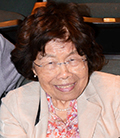 Tomoko Ohnishi, professor of biochemistry and biophysics who taught at the University of Pennsylvania for more than 52 years, died peacefully at her home in Radnor, Pennsylvania, on March 17. She was 88.
Tomoko Ohnishi, professor of biochemistry and biophysics who taught at the University of Pennsylvania for more than 52 years, died peacefully at her home in Radnor, Pennsylvania, on March 17. She was 88. -resized.jpg) Robert Arthur (Bob) Rescorla, emeritus professor of psychology at the University of Pennsylvania, died in Austin, Texas, on March 24. He was 79, and his death followed complications resulting from a fall in his home.
Robert Arthur (Bob) Rescorla, emeritus professor of psychology at the University of Pennsylvania, died in Austin, Texas, on March 24. He was 79, and his death followed complications resulting from a fall in his home.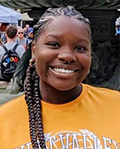 University of Pennsylvania junior Misha McDaniel has been awarded a 2020 Beinecke Scholarship to pursue graduate education.
University of Pennsylvania junior Misha McDaniel has been awarded a 2020 Beinecke Scholarship to pursue graduate education.